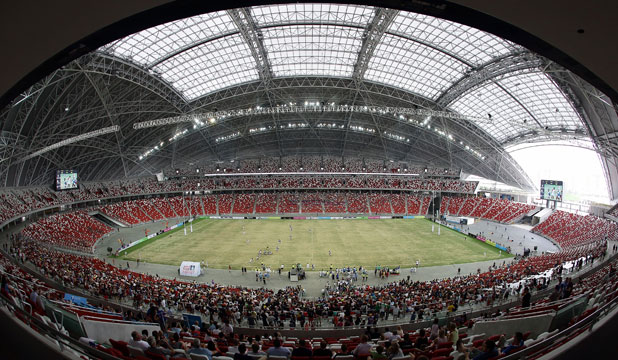
Major events across the planet—from the Olympics to the World Cup—provide area hoteliers unique opportunities to capitalize on increased demand and maximize revenue with huge potential rewards.
NB: This is an article from IDeaS
However, if not planned and executed well, hotels may risk displacing existing loyal guests, and flawed pricing strategies could lead to a half-empty hotel and high rates of no-shows.
In preparation for the forthcoming Tokyo Olympic Games, 8,000 new hotel rooms are projected to open in Japan by 2020, with a shortfall of around 3,500 rooms estimated compared with the projected 40 million inbound tourists expected for the year.
To properly prepare for major events like the Olympics—or the forthcoming Rugby World Cup (also to be held in Japan in Q4 2019)—hoteliers need to consider a variety of factors. Here are just a few tips in this first installment of IDeaS’ major events strategy series.
Minimize Last-Minute Cancelations
The Tokyo Olympics will deliver a flood of new guests, including last-minute bookings, so it is critical hoteliers have the appropriate overbooking strategies in place. While hoteliers in other markets traditionally use an overbooking revenue strategy to counteract last-minute cancellations, the Olympics deliver substantial numbers of potential new hotel guests and generally fewer cancellations from tighter booking terms and conditions.
To minimize the impact of costly, last-minute cancelations in the lead-up to the Olympics, hoteliers can implement a system of phased pre-payment restrictions, and cancelation period policies should be tightened. For instance, if the current cancelation period is 24 hours, it could be changed to seven days, or even as much as 28 days prior to the event.
These terms and conditions should be clearly stated at the time of booking. If large numbers of cancelations are expected in the lead-up to the Olympics, pre-payment plans will allow hoteliers to recoup a large slice of their potentially lost profits, which will then be complemented by last-minute fill-ins in the weeks before the event.
Given the sheer scale of expected demand for the Tokyo Olympics, hoteliers will be asked to contract a large portion of rooms for wholesalers and related organizations. This portion of contracted rooms can be as high as 90 percent of the hotel’s available room inventory, presenting challenges as those rooms may be released back into inventory at a certain time close to the event, or at a time when the wholesaler or travel agency is not able to resolve their committed inventory.
Tokyo-based hoteliers can address this situation by holding a chunk of rooms out of inventory for group sales to ensure they can accurately handle flux in their transient inventory.
Evaluate Length-of-Stay
Over the course of the Olympic period, hoteliers can enforce minimum length-of-stay requirements to encourage longer stay periods and improve occupancy. However, these restrictions need to be carefully considered in the wider context of the event. If they are overly restrictive, they can put customers off.
For example, some hoteliers may seek to set a week as a minimum length of stay over the Olympics, but some guests may only be interested in attending key events (like the swimming finals) before leaving. Restrictive minimum length-of-stay requirements would result in these guests not considering that hotel and impact potential occupancy and revenue.
To address these issues, hoteliers should implement automated dynamic length-of-stay controls using hurdle rates, or last room values, to vary the restrictions by forecasted demand or room types . This allows more flexibility and adjustment as demand patterns fluctuate.
Review & Adjust Your Plan
Tokyo-based hoteliers should begin planning for the 2020 Olympics now. Management teams should review the strategy at frequent intervals in the lead-up to the event, so any necessary tweaks can be made as required, for example through weekly or monthly meetings.
By understanding the implications of a number of “what-if” scenarios, through forecasting undertaken at the planning stage, hoteliers can make changes to pricing, restrictions and segmentation strategies accordingly as the event approaches. These thorough planning and review processes will put hoteliers in the best possible position to make an effective revenue strategy for the course of the event.




